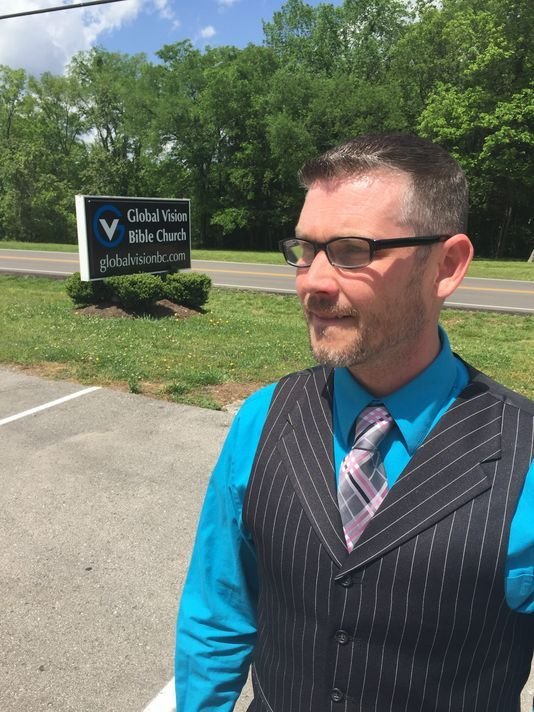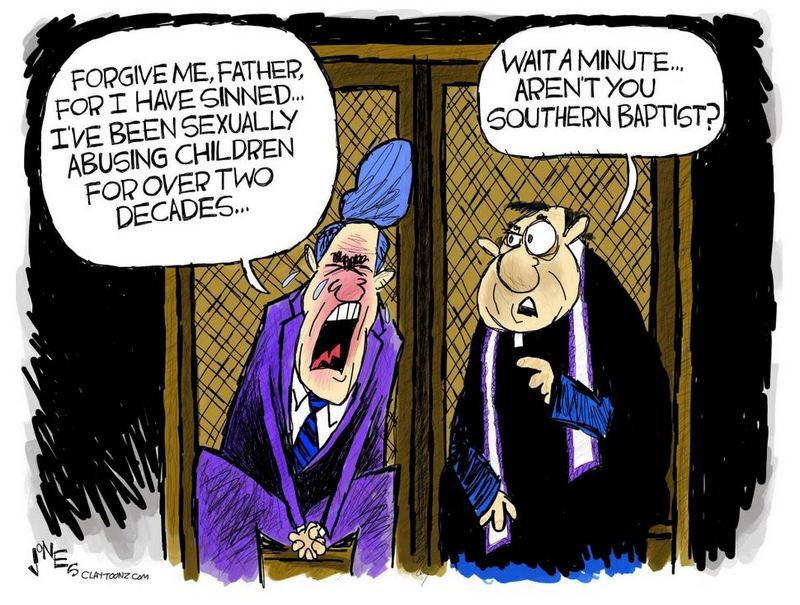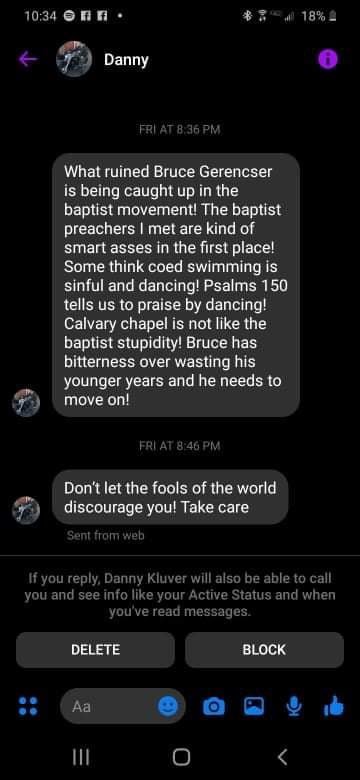
Ed Litton, pastor of Redemption Church in Saraland, Alabama was recently elected as the next president of the Southern Baptist Convention — the largest Protestant Christian sect in the United States. While Litton is a Fundamentalist, evidently he was not Fundy enough for extremists within the SBC. Outraged over his election, these keepers of Baptist purity scoured the Internet looking for evidence to smear Litton. And sure enough, they found it.
Litton is a serial plagiarizer. Scores of online sermons were found where Litton had ripped off the material of others and presented it as his own. In other words, Litton is a thief. He took that which belonged to someone else, failed to provide proper attribution, and presented it as his own. In any setting, this is wrong. I have had numerous bloggers over the years quote my writing without giving attribution. Some Evangelical bloggers quote my work but refuse to link to this site lest their readers are tempted to read my writing for themselves. You know, I work for Satan and my calling in life is to lead people astray.
As I have followed the Ed Litton saga, I have noticed the outrage among Evangelical preachers over Litton’s thievery. While pointing out how dishonest and unethical it is to not provide proper attribution, some offended preachers believe such behavior is rare. As I shall show, it is not.
I was an Evangelical pastor for twenty-five years. I preached my first sermon at age fifteen, my last at age fifty. All told, I preached 4000+ sermons. While I bought several sermon outline books early in my career, I never used them. Every sermon I preached was my own. I worked hard at crafting sermons that would speak to those who heard me preach. Having OCPD (Obsessive-Compulsive Personality Disorder) drove me to be exacting in my preparation. I was a consummate outliner. Whatever people thought of my preaching, there was no question that my sermons were my own. When I quoted a preacher or an author, I ALWAYS gave proper attribution.
The first church I worked for was a GARBC church in Montpelier, Ohio. While I was there, one of the deacons accused the pastor of stealing material from the Independent Fundamentalist Baptist (IFB) rag, the Sword of the Lord. This was the first time I saw plagiarism firsthand. The pastor won the battle, and the deacon and his family left the church.
In 1983, I started Somerset Baptist Church in Mt. Perry, Ohio. I pastored this church for eleven years. Before purchasing an abandoned brick Methodist church building, Somerset Baptist used the upstairs of a facility called the Landmark Building. The aforementioned plagiarizing pastor had left Montpelier Baptist by then, so I asked the new pastor to come preach for me. This pastor asked me if I had anything specific he wanted me to preach on? He told me that he had memorized a number of sermons that had been published in the Sword of the Lord, and he could preach several of those if I wanted him to. One such sermon was Greg Dixon’s sermon titled “The Sinking of the Titanic.”
I replied, “why don’t you preach something original?”
In the mid-1980s I managed a Christian bookstore owned by a family that attended Somerset Baptist. Evangelical preachers came to the store to purchase books of sermon outlines. I was surprised by how many preachers wanted these books. While I was happy to sell the books to them, I silently wondered why they weren’t crafting their own sermons. I concluded that these preachers were either poorly trained, lacked the requisite skills necessary to write a sermon, or were just downright lazy. (The ministry is a perfect place for lazy men to hide.)
From 2002-2008, my wife and I, along with our children, visited over 125 churches. Please see But Our Church is DIFFERENT! for a list of the churches we visited. We heard lots of sermons — good and bad. We heard preachers who had no public speaking skills. And I mean none. These men were atrocious speakers who had no business preaching. I was taught in Bible college that whom God calls, he equips. These preachers may have been “called,” but they most certainly were not equipped. My wife’s father graduated from Midwestern Baptist College in 1976. He started an IFB church in Buckeye Lake, Ohio in 1981. I was his assistant for 2 years. Dad was loved by the church, but he couldn’t preach. Dad took speech and homiletic classes in college, but what he was taught didn’t stick. His sermons were often rambling and incoherent. Dad turned chasing rabbit trails into fine art. I tried to help him. I remember sitting down with Dad and showing him how to craft an outline. Sadly, my instruction failed. We heard many Dads over the years; good men who lacked basic public speaking skills.
We also heard a handful of gifted orators, men who knew how to craft sermons. What was surprising was the number of men, regardless of skill level, who “borrowed” the work of others without attribution. I will admit that I was a sermon critic. I could spot theft from a mile away. Let me conclude this post with a story about a new church plant in Bryan, Ohio.
We attended this church for several weeks. After hearing the pastor preach a few times, I came home one Sunday and told Polly that there was something not right about his sermons. His words had a familiar ring to them. After doing a bit of sleuthing, I determined this pastor was using the sermons of Rick Warren word-for-word. He wasn’t even trying to disguise his theft. The tell? He quoted a lot of different Bible translations, a classic Warren trait. Busted!
I am not suggesting that all Evangelical preachers are thieves. However, it is clear to me that plagiarism is far more common than Evangelicals are willing to admit. There’s nothing wrong with quoting the work of others as long as you give proper attribution. Doing so is not hard — “Rick Warren recently said _______.” Easy-peasy.
Bruce Gerencser, 68, lives in rural Northwest Ohio with his wife of 47 years. He and his wife have six grown children and sixteen grandchildren. Bruce pastored Evangelical churches for twenty-five years in Ohio, Texas, and Michigan. Bruce left the ministry in 2005, and in 2008 he left Christianity. Bruce is now a humanist and an atheist.
Your comments are welcome and appreciated. All first-time comments are moderated. Please read the commenting rules before commenting.
You can email Bruce via the Contact Form.


















